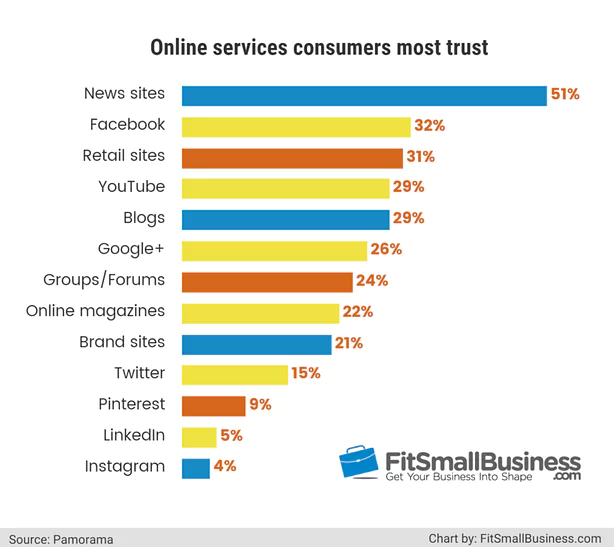Blogging Tips for Business Owners
 As a business owner or an accountant, do you ever wish you could clone yourself?
As a business owner or an accountant, do you ever wish you could clone yourself?
Just think, if there were several productive copies of you running around, how much would it be helpful for your business and its expansion? How many people you can reach out to let them know about the inner workings of accounting?
While not exactly cloning yourself, the art of blogging can help you reach more people. Its one of the most effective ways of communicating with both the prospective clients and the already acquired ones. It can also enhance your brand awareness, and market your firm to an audience you want to reach out to.
According a study by hubspot, blogs are the 5th most trustworthy source of information on the Internet behind news sites, Facebook, retail sites and YouTube. Therefore, users consider blogs as a credible source of information.
 Blogging is a way to form deeper connections with your clients, and a way to extend your reach beyond your neighbourhood. So consider these blogging tips when writing your blog posts:
Blogging is a way to form deeper connections with your clients, and a way to extend your reach beyond your neighbourhood. So consider these blogging tips when writing your blog posts:
Focus, Focus, Focus!
You’re an accountant or business owner, so stick to your areas of expertise. Try to not write about about politics, sport or about your weekend plans. Stay on topic. Keep an eye out to the latest happenings or mishaps in the world of accounting and keep your blog post about and around that.
Value is a Two-Way Street.
Your blog ought to be a medium that exists for communicating with your clients and the audience you want to reach out to. If you want them to keep reading it, you must offer something valuable. This could be your unique perspective on accounting, or a valuable lesson you learnt after failing. They’ll return the value by echoing a word about your business.
Know Your Audience.
If you really want to first engage and then woo your audience, first know who you are writing for and then show them you understand their business. Write in a way which tells them your business and accounting habits can help overcome their specific challenges.
Balance is the Key
On an average, most posts are usually between 400 and 600 words. If they’re much shorter than that, search engines ignore them. If they’re much longer, it will lose the readers’ attention. Alternatively, splitting one long post into separate parts to engage curiosity can be a great strategy.
Keep a Steady Posting Pace
Non updated and stale blogs give a bad impression so yours should be updated regularly. A blog that is not updated regularly is worse than not having one. But this surely doesn’t mean you have to post every day. Create a calendar of planned content, perhaps one entry per week, and stick to it. Regular posting will also contribute to your site’s search engine rankings, meaning the more content you publish, the more visitors you’ll get.
Promote And Analyse
Unread content, no matter how good, has no value. Use social media to share your posts. Twitter, LinkedIn and Facebook will all bring traffic to your blog if used wisely. You can also consider adding social media buttons to your posts which will enable your readers to share your content easily, bringing in more readers. Use tools like google analytics to analyse which post performed better and which failed to gather the audience.
Content is at the core of everything that a business does, because content is at the core of how we do a business, whether you’re selling, promoting, or just informing.
Blogging is a powerful means of communication for your firm. As a business owner or an accountant, you should make use of it as a key component in your overall marketing strategy.
